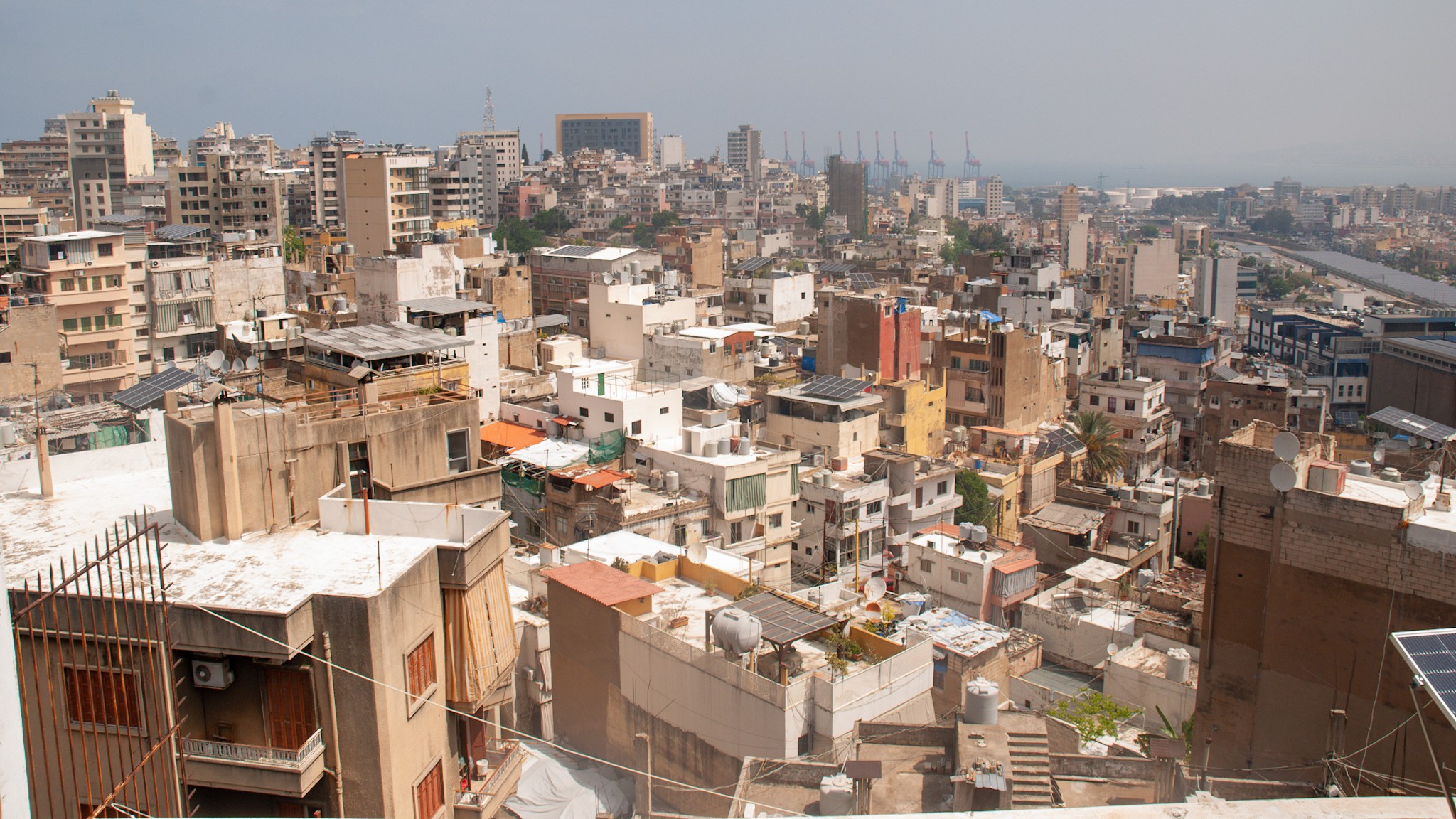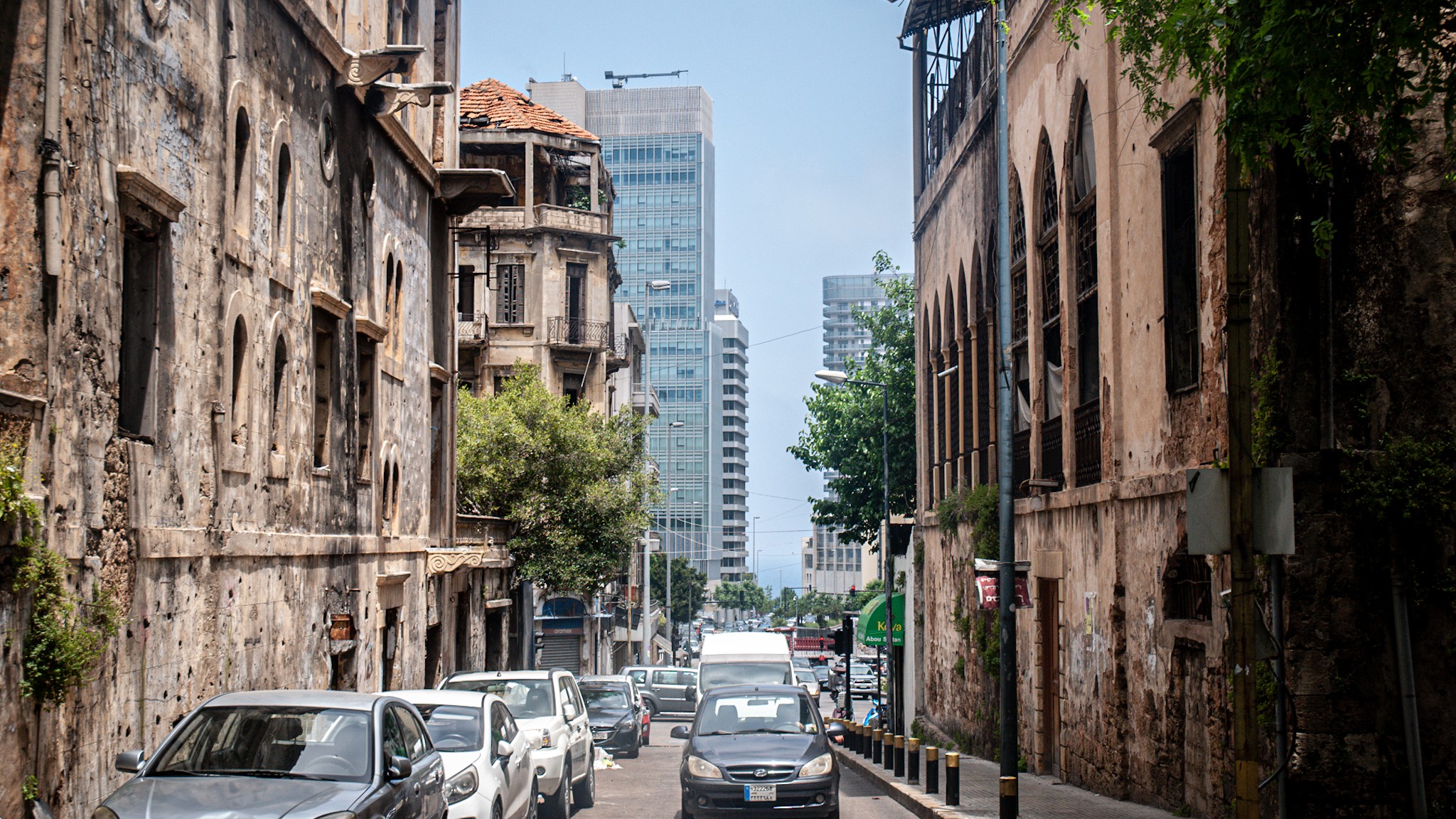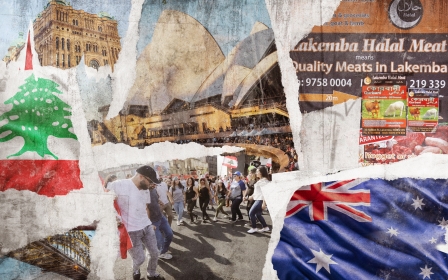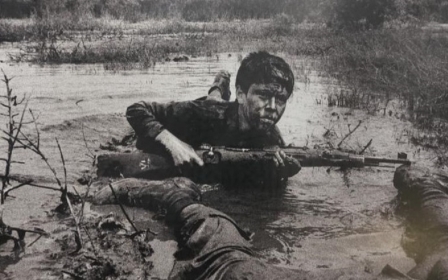How Beirut's few communal gardens and spaces are under threat

Last month, all movable objects, including benches and a public library, disappeared from Beirut's Laziza Park.
"We almost don't dare come over here to water the plants anymore because we are afraid somebody might call the police," Samer Alhaj Ali, who has helped revive the derlict plot of land by planting trees and shrubs, tells Middle East Eye.
The police have kept a close eye on the park in recent months on behalf of the owner of the space.
Laziza Park was founded three years ago when a group of friends revived an abandoned site in the heart of the Mar Mikhail neighbourhood. "We had a lot of free time during the pandemic and wanted to do something useful," Alhaj Ali explains.
Originally, the site was home to the Laziza Brewery, said to be the oldest brewery in the Middle East.
Stay informed with MEE's newsletters
Sign up to get the latest alerts, insights and analysis, starting with Turkey Unpacked
But after its demolition, all that was left was an abandoned area with trash piling up. The friends started cleaning it up and then created a community garden step-by-step.
Today, while the benches have gone, the park's trees continue to bloom. But the park's future remains uncertain, alongside many other public spaces and parks in Beirut.
The ongoing economic crisis, coupled with corruption and the threat of people organising and demonstrating has raised concerns over the loss of public spaces.
Uncertain future of public spaces
The group responsible for cleaning up and looking after Laziza Park, known as GRO Beirut, takes pride in their work.
They came together following the Beirut blast in August 2020, which devastated neighbourhoods and claimed the lives of 218 people, and helped fix windows in the area and give out supplies.
Eventually, the initiative would expand, and the team would go on to organise more workshops and neighbourhood dinners as well as tend to the plants.
However, looking after the public space has not been without its challenges.
"It's really hard for the neighbours in the area to accept us," says Alhaj Ali, who is determined to keep green spaces in the city alive. He and his group were all met with suspicion when they first started working in the park.
The team has faced numerous complaints from neighbours in the area, who say that there is too much noise from the group.
According to Alhaj Ali, the neighbours "probably just do not want to be bothered" by the noise generated from people gathering there.
But one of the main challenges stems from Alhaj Ali and his group not knowing what the owner intends to do with the plot of land.
If the owner were to want to convert it to a parking lot, as other parks in the city have been, Alhaj Ali says that he'd like to know in advance. That way, "we can at least take the trees out and plant them somewhere else".
The privatisation of land
In Beirut, green spaces are scarce. The World Health Organisation suggests nine square metres of green space per inhabitant, but Beirut does not even provide one.
Skyscrapers have continued to crop up around the city in recent years, leaving little room for public spaces and gardens.
'The majority of Lebanese people are convinced that private property is sacred and land is there to generate money'
- Tala Alaeddine, researcher and coordinator
Following the Lebanese civil war (1975-1990), land became increasingly promoted as a commodity.
The plan was to make Beirut the financial capital of the region and economic recovery was centred on attracting capital and investors in the real estate sector, and privatising land.
Most prominently, the reconstruction of downtown Beirut by the real estate company Solidere under Rafic Hariri's government in the 1990s led to the eviction of hundreds of people and the destruction of century-old streets and homes.
Beirut's souqs, which were a melting pot of all classes and religions, became a mall - a tragic example of the marginalisation of public places if they get in the way of profit.
"The majority of our society doesn't really think of land as having a social value," says Tala Alaeddine, research coordinator at the Public Works Studio urban research centre in Beirut. "The majority of Lebanese are now convinced that private property is sacred and land is there to generate money."
Real estate developers-turned-politicians
Another aspect affecting green areas and parks are the laws and ordinances that have allowed for the encroachment of public spaces.
According to Alaeddine, rules are often bent in the city.
"Over the last three years, the majority of decisions taken by the general directorate of urban planning and its higher council were based on exceptions - from the laws, from the master plans and from the zoning [regulations]," she says.
The bending of the laws when it comes to public spaces is similar to what politicians are doing in parliament and the government in general, Alaeddine adds.
"Many politicians actually are either real estate developers themselves or are very well connected to them," she explains. "That's why a lot of corruption happens whenever land management and building is involved."
To achieve their goals, authorities also influence the public discourse, Alaeddine explains. "They claim that we, the people, would not know how to use public spaces."
Citing concerns about pollution and littering, authorities were continuously trying to limit access to public parks such as Horsh Beirut, especially for marginalised groups such as Syrian refugees, she mentions.
Losing creative spaces amid an economic crisis
Situated in the middle of old decaying houses and skyscrapers, Mansion is a unique place that is at risk of being lost.
The non-profit meet-up spot is located in a three-storey villa in Zuqaq al-Blat and opens its doors to anyone who wants to pass by for some coffee, free wifi or a chat.
The kitchen and most spaces are shared by all, while the upper floors host artists' residencies.
In 2012, a group of people managed to strike an agreement with the owner that blew the dust out of the formerly abandoned villa that has, ever since, become home to artists and researchers.
"Places like this one are very important for creative people and all sorts of initiatives, especially as a starting point," says Dahlia Barakat, a young artist with an art residency at Mansion.
"Sustaining them is becoming harder right now since we are losing a lot of them due to the crisis."
In 2019, Lebanon was thrown into what the World Bank calls one of the world's worst economic crises, as its neoliberal financial system collapsed.
Since then, the Lebanese Lira has lost more than 98 percent of its value, with skyrocketing inflation, and 82 percent of Lebanese people now live in poverty, according to the United Nations Relief and Works Agency.
In this context, many alternative places and communal projects have been forced to close or shrink their operations, due to lack of funding and energy. Landowners have since turned to more profitable land usage.
"We are currently negotiating with the owner new terms on how to use the space. Our aim is to keep the space communal," Alaeddine tells MEE.
As a member of both the Public Work Studio and Mansion's staff, she is a first-hand witness to the quiet and gradual process of privatisation.
Revolutionary potential of public spaces
Another factor that has made public spaces rare in Beirut is the threat they pose to government and authorities due to people using them as a venue to organise protests.
During the 2019 uprisings, known as "the Thawra", thousands of demonstrators occupied Beirut's Martyr Square, the Ring Highway and other iconic places, setting up tents for the debates and gatherings that often erupted into demonstrations.
Dahlia Barakat was part of the movement. "During the revolution, everyone was on the streets. We were coming together and talking about things right there, right then," she remembers.
And for her, the importance of community spaces has increased since then.
"It feels like the streets have been taken away from us," the artist tells MEE, reflecting on the happenings.
"Now, there is a lot of fear around the streets because the revolution was very heart-breaking," she adds, referring to the trauma experienced during the burnt-out uprising.
"This is why Mansion and other safe spaces are so important. Here, we can talk and work and try to create something, together."
Middle East Eye delivers independent and unrivalled coverage and analysis of the Middle East, North Africa and beyond. To learn more about republishing this content and the associated fees, please fill out this form. More about MEE can be found here.






